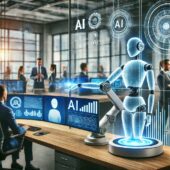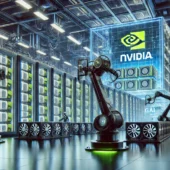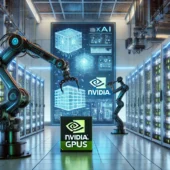Title: Generative AI: A Catalyst for Democratization
Summary and Opinion:
Generative AI, a branch of artificial intelligence capable of creating new content, has been making significant strides in various fields. Its impact on democratization is particularly noteworthy, as it has the potential to level the playing field by providing equal access to resources, information, and creative tools.
A key aspect of generative AI is its ability to produce high-quality content, from text and images to music and video, which can empower individuals and communities with limited resources. According to a recent article from the World Economic Forum, generative AI can help bridge the gap between developed and developing regions by offering advanced educational tools, healthcare solutions, and business opportunities . For instance, AI-driven educational platforms can provide personalized learning experiences to students in remote areas, while AI-generated medical diagnostics can assist healthcare workers in underserved communities.
However, the democratization potential of generative AI is not without challenges. A report by MIT Technology Review highlights the risks associated with biased algorithms and the concentration of AI development within a few tech giants . Ensuring that generative AI systems are fair, transparent, and accessible to all requires concerted efforts from policymakers, technologists, and civil society. This includes establishing ethical guidelines, promoting open-source AI initiatives, and investing in digital literacy programs.
Another significant contribution of generative AI is its role in fostering creativity and innovation. As Forbes points out, AI-generated art, literature, and music are opening new avenues for artistic expression and collaboration . By democratizing access to creative tools, generative AI is enabling a more inclusive cultural landscape where diverse voices can thrive.
In conclusion, while generative AI holds immense promise for democratization, its successful implementation hinges on addressing ethical concerns and ensuring equitable access. By fostering collaboration across sectors and prioritizing transparency, we can harness the full potential of generative AI to create a more inclusive and equitable world.
Hashtags: #GenerativeAI #Democratization #AIinEducation #EthicalAI #DigitalInclusion
Backlinks:






Generative AI is indeed a game-changer in the realm of democratization. As the technology evolves, it’s fascinating to see how it can bridge gaps in education, healthcare, and creativity. By providing AI-driven educational tools to remote areas, we can offer personalized learning experiences that were previously unattainable. Similarly, AI-generated diagnostics can significantly enhance healthcare in underserved communities, ensuring that critical insights are available to medical professionals regardless of location.
However, the potential of generative AI comes with its own set of challenges. One major concern is the ethical implications of biased algorithms. If not addressed, these biases could perpetuate inequalities rather than eliminate them. Therefore, it is crucial for policymakers and technologists to work together to develop fair and transparent AI systems. Moreover, promoting open-source AI initiatives can help democratize access to this powerful technology, ensuring that it benefits a wider audience.
Generative AI’s impact on creativity cannot be overlooked either. By democratizing access to creative tools, AI is opening up new avenues for artistic expression and collaboration. This inclusivity is vital for a culturally rich and diverse society where all voices can be heard and appreciated.
In conclusion, generative AI has the potential to be a powerful force for democratization, but it requires careful implementation and ethical oversight. By addressing these challenges and promoting equitable access, we can harness the full potential of this technology to create a more inclusive and equitable world.
Backlinks:
https://www.weforum.org
https://www.technologyreview.com
https://www.forbes.com